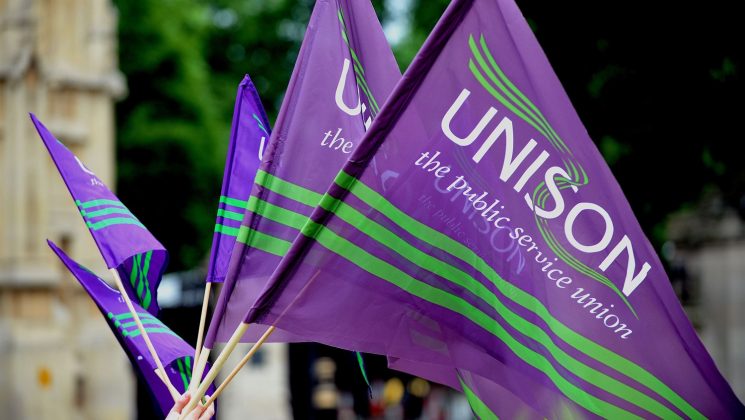She accused student supporters of undermining the campaign.

Marcia Morillo has been cleaning at the prestigious King’s College University in London for eight years.
Although working at King’s though, until last week she was never employed by King’s.
First, she was employed by a company called Office and General. Then, four years ago, the contract switched to a South African company called Servest.
According to Morillo, that’s when the problems really began. Servest made many cleaners redundant and tried to reduce the hours of the cleaners still there.
In response, Unison called a meeting and the cleaners started to campaign against the reduced hours.
It worked. They won. “It felt great. We felt united,” said Morillo, “but Servest continued being a very bad employer so we continued organising”.
The cleaners upgraded their campaign’s demands. Morillo says they wanted to be made direct employees of King’s College – brought ‘in-house’.
There was lots of reasons why they wanted this. According to Morillo, discrimination, bullying and overwork were widespread.
There were problems with managers, staff payment issues, health and safety concerns and failure of the company to provide basic equipment, she said.
Another grievance was holiday. Staff could take the legal minimum of 20 days but their employer decided when they could take it.
“They gave holiday when they wanted not when we needed,” said Morillo.
This meant that the cleaners, many of whom are migrants, were rarely given the weeks in a row needed for them to go and visit family abroad.
Many have not seen their families for five or six years, Morillo said. Others have missed funerals.
Another grievance was sick pay, or the lack of it. Morillo said that Servest only paid the statutory minimum so cleaners did not get paid for the first three days of being off sick.
As many could not afford to pay their rent without those three days’ pay, they had to come to work sick.
Another problem was maternity leave. Women had to work when they were almost nine months pregnant, she said – climbing stairs and doing hard physical work.
Servest’s pension contriutions were also low, Morillo said. Servest paid 3% while the cleaners paid 4%.
For all these reasons, the cleaners have been campaigning to be brought in-house.
For much of the time, Morillo said, they felt like they would never win – but they kept on fighting.
After negotiations with Servest broke down, they were balloting to strike when Kings College management intervened and agreed to negotiate with the cleaners directly.
This is when the support of the students, which was initially very welcome, became a mixed blessing, Morillo said.
“We are really happy the students are there but they are not workers for Kings. In the end, we had issues with some of the students because they undermined us,” Morillo said.
“They wanted to negotiate on our behalf which was so inappropriate. We are the workers and we can represent ourselves, we don’t want someone not in our shoes going to negotiate for us and discuss our contract. That’s why we, as cleaner and Unison reps with the support of the Unison KCL and branch officers led the negotiations.”
In the end it was two cleaners and two security staff who negotiated a contract with King’s management – and they were brought in-house on August 1st.
Now, conditions are much improved. “It’s amazing,” said Morillo, and you can hear the happiness in her voice.
For starters, the cleaners now have full sick pay for six months and half sick pay for six months – so an injury doesn’t necessarily lead to fear of eviction.
On holidays, they hope they will be able to take them when they want and many are now trying to get a few weeks off to see their family for the first time in years.
On pensions, King’s pay 16% (instead of Servest’s 3%) while the cleaners pay 6%. Morillo says this feels unfair on those who have been cleaning at Kings for decades and are now only a few years from retirement but even those cleaners are happy.
A problem the cleaners face now though, Morillo says, is with former Kings students who were involved with the campaign but are now criticising Unison’s campaign on the internet.
“We know what happened, they don’t,” she said. “We have many issues with the students – because they want to have control of the campaign for the cleaners. I am a cleaner and I want to talk.”
“We wanted to have a meeting with the students, and say, if they want to support us, don’t put things on the internet that aren’t true. They criticise Unison.”
Morillo said that when students criticise Unision, they are criticising the cleaners that make up Unison.
” You cannot separate a group of workers coming together and fight for their rights from their chosen union, Unison,” she said. “Its up to us to make our union stronger and by workers coming together we are strong and we make our union stronger.”




2 Responses to “A King’s College cleaner explains how they won a four-year campaign against outsourcing”
Tom Sacold
Back when I was a student, we earned extra cash by getting the cleaning jobs at the University.
LaBoheme
I finished my PhD in 2010 and have subsequently run as far and as fast as I can from academia, because the entire edifice is rotten to the core. Now I have my own company https://3hoursessay.com/ and I pity those still working there who lack the wherewithal to leave as I did.